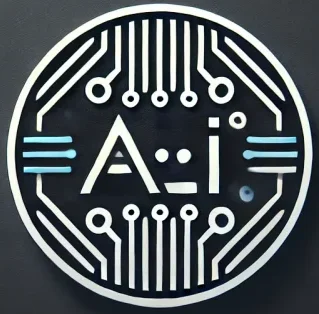# The Rise of AI-Powered Predictive Healthcare: Transforming Patient Outcomes
In an era where technology intersects with every facet of our lives, artificial intelligence (AI) stands out, particularly in its role within the healthcare sector. **AI-powered predictive healthcare** is not just a trend; it’s rapidly becoming an essential component in how medical care is delivered, promising to transform patient outcomes through innovative applications. This burgeoning field leverages machine learning algorithms and massive data sets to predict health events before they occur, enabling proactive rather than reactive medical care.
### Real-World Applications of AI in Healthcare
AI’s integration into healthcare is vast and varied, offering groundbreaking applications that are changing the landscape of medicine:
– **Predictive Analytics in Patient Monitoring:** Companies like IBM and Google are leveraging AI to analyze data from wearable health devices in real-time. This allows for the prediction of potential health crises, such as heart attacks or diabetic emergencies, days before they might happen.
– **Early Disease Detection:** AI algorithms are being used to detect diseases such as cancer and Alzheimer’s far earlier than traditional methods. For example, AI-driven tools analyze images, such as mammograms, with higher accuracy than human eyes.
– **Personalized Treatment Plans:** AI systems can analyze data from a patient’s health records to suggest customized treatment strategies. This not only improves the efficacy of treatments but also reduces the risk of side effects.
### The Impact of AI on Healthcare
The implications of AI in healthcare are profound:
– **Increased Accuracy:** AI systems provide high precision in disease diagnosis and predictions, surpassing human capabilities in some areas.
– **Enhanced Efficiency:** AI can automate routine tasks, from data entry to complex diagnostic processes, freeing up medical professionals to focus more on patient care.
– **Cost Reduction:** By predicting diseases early and optimizing treatment plans, AI can significantly reduce healthcare costs associated with late-stage treatments and hospital stays.
### Challenges and Ethical Considerations
Despite its benefits, AI in healthcare does not come without challenges:
– **Data Privacy:** Handling sensitive health data requires stringent security measures to prevent breaches.
– **Bias in AI Models:** If not properly trained, AI systems might develop biases based on the data they are fed, potentially leading to unequal healthcare services.
– **Regulatory Compliance:** AI applications must comply with healthcare regulations, which can vary significantly across different regions.
### The Future of AI in Healthcare
Looking ahead, the potential of AI in healthcare is boundless. Here are a few predictions:
– **Widespread Adoption of AI Clinics:** Virtual AI-driven clinics could become a first point of consultation, especially in regions with limited access to healthcare facilities.
– **Integration with Genomics:** AI might soon offer personalized medicine based on genetic profiles, potentially preventing hereditary diseases.
– **Advanced Robotic Surgeries:** With AI advancements, robotic surgeries will become more precise and less invasive, reducing recovery times and improving outcomes.
### Conclusion and Call to Action
The integration of AI into healthcare is revolutionizing the way we predict, diagnose, and treat diseases. As this technology continues to advance, it promises not only to enhance the efficiency of healthcare services but also to improve the quality of life for patients worldwide.
**Stay informed** about the latest developments in AI healthcare by subscribing to industry newsletters, attending relevant webinars, and participating in community discussions. The future of healthcare is here, and it is highly intelligent.
If you’re a healthcare provider, now is the time to explore how AI can be integrated into your practice to not only improve patient outcomes but also streamline your operations. Start small, perhaps with AI-driven data analytics, and gradually scale as you witness the benefits firsthand. The future is not just coming; it’s already here, and it’s powered by AI.
